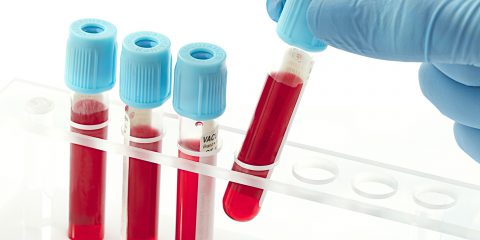24 results

Same-day Testing and Treatment, STAT
Imagine walking for most of the day to get to the health center nearest your community, carrying your young child who is very ill. When you arrive, the doctor takes a sample from your child to perform a diagnostic test. You then learn that it will take a month or more to receive the results, as only a specialised laboratory can perform the necessary test to obtain a diagnosis. This sort of unnecessary delay can be the difference between life and death. It is still, nevertheless, the reality in many countries, especially in limited resource settings where diagnostic testing is centralised, and most patients live far from testing sites.

Understanding in Vitro Diagnostics & Why They Need a Separate Regulatory Framework
Many times I’ve found myself in situations where I had to explain that indeed in vitro diagnostics (IVDs) are to all extent medical devices but that, in practice, the subject we happened to be discussing would not entirely (or at all) be applicable to IVDs.
It was always a case of: “…yes, yes.. BUT”…
If there is one message you take away from this post, let it be… IVDs have very different risk sets associated to them: no direct contact with patient, value of the medical data they deliver and that they provide no treatment.

Why PMA is a step backwards in the approval approach for medical technology
Lately I hear and read a lot of people asking for a Pre-Market Authorisation process for medical technology in Europe, or PMA process as it’s known, similar to the one in the US. Even the European Parliament voted (narrowly) for a resolution in which they call for a PMA approach. And that made me think, hold on a second, don’t we already have an approval system in Europe for high risk products?

Centralised procurement – a blessing or a curse?
Centralised procurement of medical technologies is an increasingly prevalent phenomenon in the EU, and one that all stakeholders in this field, whether for or against it, have strong opinions on. Purchasers have embraced centralised procurement as a means to drive down costs. Suppliers fiercely oppose it as it would limit market opportunities and slow down adoption of innovations. Some experts believe that centralised procurement might actually have a negative effect on quality of care in the long run, as it focuses too much on short term cash savings.

Posted on 18.07.2011
Hear, hear! We can really help current and future medical technology SMEs to innovate!
Small and medium sized enterprises (SMEs) are the lifeblood of the medical technology industry. Research in the medical technology industry, which typically occurs at the bedside not at the bench, is usually a result of small or micro collaborations between health professionals, academia and SMEs. This research model brings rapid innovation, which quickly tackles current and emerging medical needs. This innovation can only be good news for under-pressure European healthcare systems as there is clear evidence that more effective treatments are capable of delivering clear benefits; reduced hospital stays (with an associated reduction in cost of treatment); better outcomes, and faster rehabilitation and return to society.

Posted on 06.10.2010
Wiring up wireless enabled healthcare
Yesterday afternoon I was fortunate enough to be invited to participate in a round table discussion organised by Motorola as part of the EU Open Days conference organised by the Committee for the Regions. Entitled ‘ EU Wide Patient Safety – A Roundtable to demonstrate ways of overcoming barriers to adoption in healthcare using innovative […]









